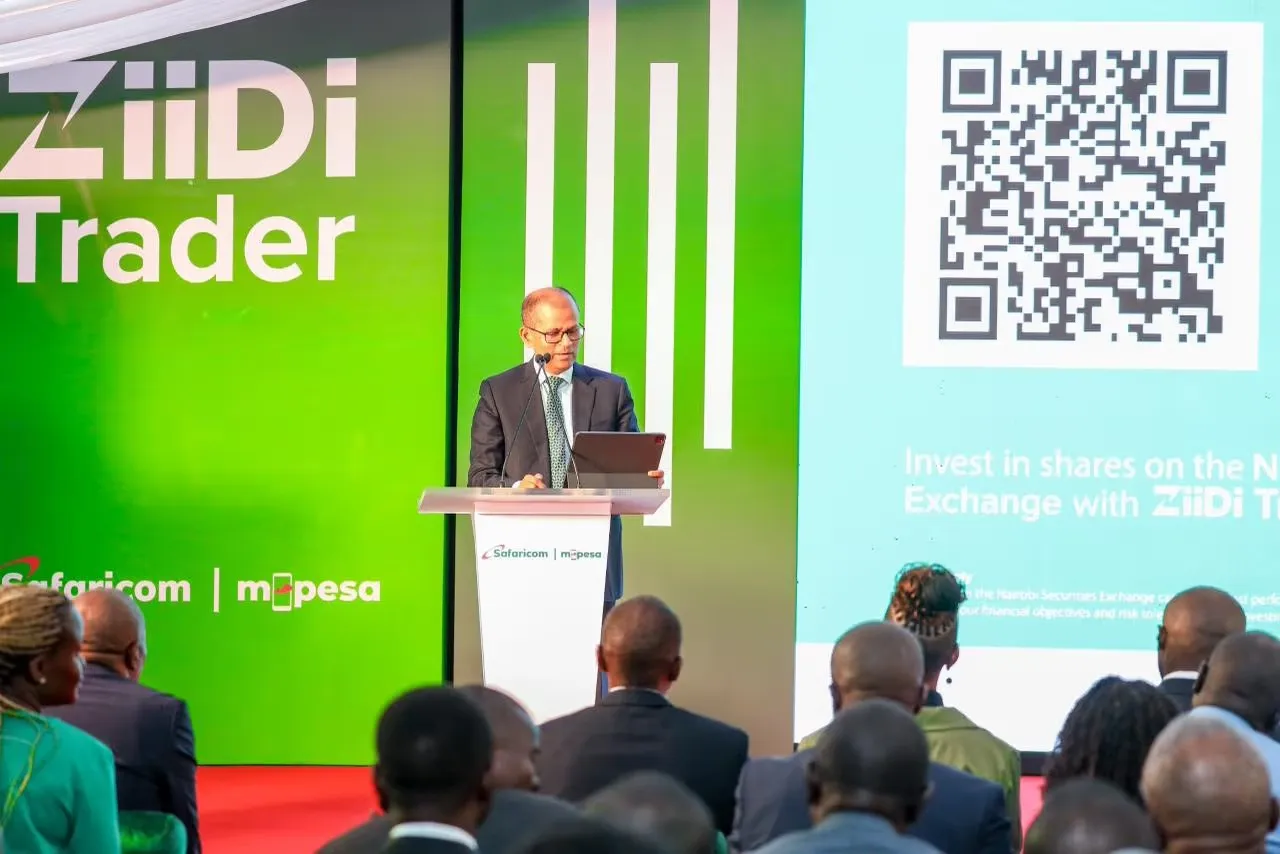Kenya’s economy faces fresh concerns following the latest Kenya National Bureau of Statistics (KNBS) Economic Indicators Report for December 2024, which revealed a sharp decline in tea and coffee exports. These two commodities are among Kenya’s top foreign exchange earners, contributing significantly to the country’s revenue. The decline in their export volumes raises serious questions about the future of Kenya’s agricultural sector and overall economic stability.
The report noted that tea exports in December 2024 dropped to 49,700 metric tonnes from 53,300 metric tonnes in November, while coffee exports fell drastically from 4,121 metric tonnes to 2,647 metric tonnes. In monetary terms, coffee export earnings declined from Ksh2.9 billion in November to Ksh1.9 billion in December, marking one of the lowest figures recorded in recent years.
These findings paint a troubling picture, given that tea alone accounts for approximately 23% of Kenya’s foreign exchange earnings, and agriculture remains the backbone of the country’s economy. With diminishing export volumes and a decline in overall trade value, concerns are growing about the long-term sustainability of the sector and its impact on employment, foreign exchange reserves, and economic growth.
Decline in Tea Exports: Causes and Effects
Tea is Kenya’s leading agricultural export, earning the country over Ksh120 billion annually. Kenya is the world’s third-largest producer of tea after China and India, with annual production averaging 450 million kilograms. The country is also the leading exporter of black tea, supplying markets such as Pakistan, Egypt, the UK, and the UAE.
Key Factors Behind the Decline in Tea Exports
- Unfavorable Weather Conditions
- The tea sector is highly dependent on rainfall, and fluctuating weather patterns in 2024 contributed to lower tea production.
- Erratic rainfall and prolonged dry spells affected tea plantations, particularly in Kericho, Nandi, Nyamira, and Murang’a, where a significant portion of the crop is grown.
- Global Market Fluctuations and Demand Decline
- Pakistan, Kenya’s largest tea export market, has been grappling with economic challenges, leading to reduced tea imports.
- Economic downturns in Egypt and the Middle East also affected demand.
- High Production Costs
- Increased costs of fertilizers, fuel, and labor have made tea production more expensive.
- Rising electricity and fuel prices in Kenya, coupled with taxation policies, have significantly increased processing costs in tea factories.
- Competition from Other Markets
- Kenya is facing growing competition from Rwanda, Sri Lanka, and India, which have been expanding their tea export markets.
Impact of Declining Tea Exports
- Reduced Foreign Exchange Earnings: The drop in tea exports directly affects Kenya’s forex reserves, which are crucial for stabilizing the Kenyan shilling.
- Job Losses: Over 650,000 smallholder farmers and thousands of workers employed in tea plantations and processing plants face uncertain futures.
- Government Revenue Decline: Tea exports contribute billions in taxes and levies, and reduced volumes could widen the country’s budget deficit.
Collapse in Coffee Exports: A Sector in Crisis?
Kenya’s coffee sector, once a key pillar of the economy, has faced a steady decline over the past two decades. The latest KNBS report shows a further drop, with coffee exports plunging to 2,647 metric tonnes in December, compared to 4,121 metric tonnes in November.
Why is Kenya’s Coffee Sector Struggling?
- Declining Coffee Production
- Small-scale farmers, who make up 75% of coffee growers, are shifting to more profitable crops such as avocados and macadamia nuts due to low coffee prices and delayed payments.
- Kenya’s total coffee production has dropped from 130,000 metric tonnes in the 1980s to an average of 40,000 metric tonnes annually.
- Poor Management and Corruption
- The Kenya Coffee Board and cooperative societies have faced allegations of mismanagement, leading to delayed payments and low farm-gate prices.
- Many farmers complain that middlemen and cartels in the Nairobi Coffee Exchange exploit them by buying coffee at artificially low prices.
- Global Market Fluctuations
- Oversupply in global markets and declining demand from key buyers such as the USA, Germany, and Japan have contributed to lower prices.
- Countries such as Ethiopia, Colombia, and Vietnam have strengthened their coffee export sectors, providing stiff competition.
Economic Consequences of Declining Coffee Exports
- Lower Foreign Exchange Revenue: Kenya relies on coffee as a key foreign exchange earner, and declining exports hurt the country’s ability to import essential goods such as fuel and machinery.
- Farmer Exodus from Coffee Growing: More farmers are abandoning coffee farming, leading to a reduction in acreage under coffee production.
- Loss of Global Market Share: Kenya risks losing its position as a leading exporter of premium Arabica coffee if production continues to decline.
Overall Decline in Domestic Exports and Trade Volumes
The KNBS report also highlighted a drop in the overall value of domestic exports, which fell to Ksh69.4 billion in December 2024, marking an all-year low.
- The total trade volume dropped from Ksh313.6 billion in November to Ksh298.7 billion in December, raising concerns about Kenya’s trade balance.
- Food and beverages, which make up 40.8% of total exports, fell from Ksh31.3 billion in November to Ksh28.3 billion in December, reflecting weak agricultural exports.
- The price of dry beans, a staple food, dropped from Ksh153 per kilo in November to Ksh150 in December, providing some relief to consumers.
- Dry maize prices fell to Ksh50 per kilo in December, down from Ksh70 per kilo in December 2023, signaling improved supply.
Key Trade Partners: Export and Import Trends
Kenya’s Major Export Destinations (December 2024):
- Uganda – Ksh7.4 billion
- USA – Ksh6.0 billion
- Pakistan – Ksh5.2 billion
Top Import Partners:
- China – Ksh53.2 billion
- United Arab Emirates (UAE) – Ksh33.1 billion
- India – Ksh18.8 billion
Kenya continues to import more than it exports, leading to a widening trade deficit. The heavy reliance on imports from China and India, especially for machinery, electronics, and pharmaceuticals, puts pressure on Kenya’s forex reserves.
Conclusion: A Call for Urgent Policy Action
The declining performance of Kenya’s tea and coffee exports poses a significant threat to the country’s economic stability. Given that agriculture remains the largest employer and a key driver of foreign exchange earnings, urgent measures are needed to revive the sector.
Key Recommendations:
- Invest in Climate-Resilient Agriculture
- Implement policies to support farmers in adapting to climate change and ensure consistent tea and coffee production.
- Address Governance and Market Inefficiencies
- The government must eliminate middlemen, enhance transparency in coffee auctions, and ensure timely farmer payments.
- Diversify Export Markets
- Explore new markets in Asia and the Middle East to reduce over-reliance on Pakistan and the USA.
- Support Value Addition
- Invest in local processing of tea and coffee to increase earnings rather than exporting raw produce.
If these challenges remain unaddressed, Kenya risks further declines in agricultural exports, loss of global market competitiveness, and economic hardships for millions of farmers. The time for decisive action is now.
Ready to take your career to the next level? Join our dynamic courses: ACCA, HESI A2, ATI TEAS 7 , HESI EXIT , NCLEX – RN and NCLEX – PN, Financial Literacy!🌟 Dive into a world of opportunities and empower yourself for success. Explore more at Serrari Ed and start your exciting journey today! ✨
photo source : Google
By: Montel Kamau
Serrari Financial Analyst
19th February, 2025
Article, Financial and News Disclaimer
The Value of a Financial Advisor
While this article offers valuable insights, it is essential to recognize that personal finance can be highly complex and unique to each individual. A financial advisor provides professional expertise and personalized guidance to help you make well-informed decisions tailored to your specific circumstances and goals.
Beyond offering knowledge, a financial advisor serves as a trusted partner to help you stay disciplined, avoid common pitfalls, and remain focused on your long-term objectives. Their perspective and experience can complement your own efforts, enhancing your financial well-being and ensuring a more confident approach to managing your finances.
Disclaimer: This article is for informational purposes only and does not constitute financial advice. Readers are encouraged to consult a licensed financial advisor to obtain guidance specific to their financial situation.
Article and News Disclaimer
The information provided on www.serrarigroup.com is for general informational purposes only. While we strive to keep the information up to date and accurate, we make no representations or warranties of any kind, express or implied, about the completeness, accuracy, reliability, suitability, or availability with respect to the website or the information, products, services, or related graphics contained on the website for any purpose. Any reliance you place on such information is therefore strictly at your own risk.
www.serrarigroup.com is not responsible for any errors or omissions, or for the results obtained from the use of this information. All information on the website is provided on an as-is basis, with no guarantee of completeness, accuracy, timeliness, or of the results obtained from the use of this information, and without warranty of any kind, express or implied, including but not limited to warranties of performance, merchantability, and fitness for a particular purpose.
In no event will www.serrarigroup.com be liable to you or anyone else for any decision made or action taken in reliance on the information provided on the website or for any consequential, special, or similar damages, even if advised of the possibility of such damages.
The articles, news, and information presented on www.serrarigroup.com reflect the opinions of the respective authors and contributors and do not necessarily represent the views of the website or its management. Any views or opinions expressed are solely those of the individual authors and do not represent the website's views or opinions as a whole.
The content on www.serrarigroup.com may include links to external websites, which are provided for convenience and informational purposes only. We have no control over the nature, content, and availability of those sites. The inclusion of any links does not necessarily imply a recommendation or endorsement of the views expressed within them.
Every effort is made to keep the website up and running smoothly. However, www.serrarigroup.com takes no responsibility for, and will not be liable for, the website being temporarily unavailable due to technical issues beyond our control.
Please note that laws, regulations, and information can change rapidly, and we advise you to conduct further research and seek professional advice when necessary.
By using www.serrarigroup.com, you agree to this disclaimer and its terms. If you do not agree with this disclaimer, please do not use the website.
www.serrarigroup.com, reserves the right to update, modify, or remove any part of this disclaimer without prior notice. It is your responsibility to review this disclaimer periodically for changes.
Serrari Group 2025
















